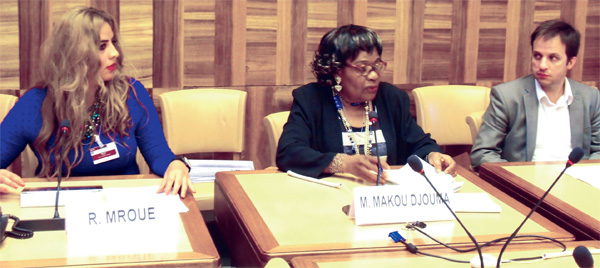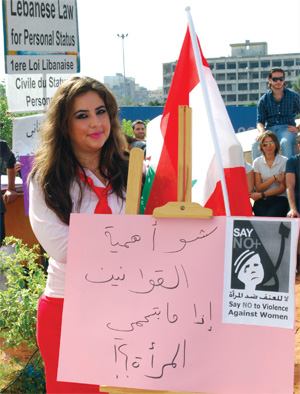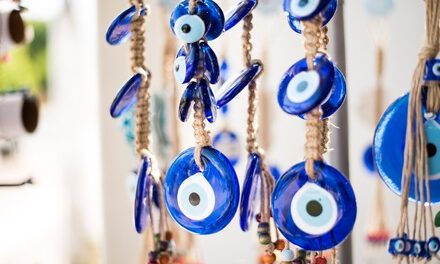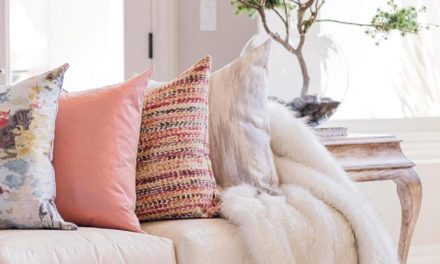
ALO connects with Middle Eastern journalist Rowaida Mroue, recounting her struggle for equal rights for women.
The world is abuzz with leveling the playing field for women – and it should be. As a high ranking official in the Sultanate of Oman told me once, “Why cut your country’s brain power in half by restricting women from positively participating and leading within the workforce?” But ask a bunch of people about women’s rights in the Middle East and the majority say this: “I can’t believe women in Saudi Arabia aren’t allowed to drive; this has to change.”
For those in the know, the debate over who can drive in Saudi Arabia is a non sequitur that distracts attention from issues that brave and determined activists like Rowaida Mroue are fighting to correct.
This zealous Lebanese journalist and human rights activist has served the media since the age of 18 as a reporter and host on Radio Orient and Lebanese television. Having worked in human rights hot zones in the Western Sahara and in the South Yemen conflict, she has seen first hand what needs to be accomplished. ALO caught up with her after a spirited dialogue on social media to clarify perspectives and identify the real problems of women’s issues in the Middle East.
Rowaida Mroue: Whether you are a tourist discovering the culture or a journalist reporting about politics or even an activist attending a social event, you will definitely be surprised by the amount of liberation you see in daily life. However, I would call what you have seen liberation but not freedom.
ALO: I am a bit shocked by this; tell me why.
RM: Compared to all other Arab countries, Lebanese women for example do enjoy full rights to education in universities, especially with advance degrees where they earn higher percentages than men. They also have more job opportunities than men, especially in the private sector. We have started to hear men in the country complaining that women take everything, yet we still want more rights.
ALO: Are the restrictions also less in personal aspects of their lives?
RM: There are many positive examples of women’s liberation. Going out late at night without social pressures, absence of forced and early marriage and less fear about not being married before the age of 35.
ALO: So there is freedom.
RM: No. This does not mean we are really enjoying freedom. There are still laws that stand as obstacles for true independence. Labor laws do not do justice to women in terms of working hours, maternity leave and social security compensation. And there is no law to protect women from domestic violence, and sanctions against rapists are very flawed. Add to that the absence of women in the electoral process, the absence of female personalities in successive governments.
ALO: What you are saying here flies in the face of the general perception of Lebanon as the most liberated country in the Middle East, especially when it comes to women.
RM: The Lebanese media and Lebanese men are misusing the liberality of Lebanese women as an excuse to say women are “free enough.” What they are actually doing when they say that is “We should shut our mouths and stop protesting.” So, yes, women in Lebanon are showing their liberties on the outside, but from inside they are oppressed by the patriarchal society which controls their own destiny in laws outside of the government. Lebanon still allows sects and clerics to dominate the courts for the lives of both women and men. Women across all regions suffer in regards to custody of children after divorce, delaying decisions for years in the courts because of personal bias.
ALO: Women are oppressed by the patriarchal society; how can this change? What is your vision for change?
RM: Women who are in politics, nongovernmental organizations and the media, must unite as true role models to fight the stereotypes about women. Specifically that they are weak and they can’t live without men’s help and support. Economic empowerment must be accomplished through loans. And through public sector policies and civil societies’ awareness campaigns to call for amendments to the discriminatory laws and to eliminate all discrimination against women in constitutions.
ALO: So are you seeking a separation of church and state? The church controls their religious matters and the state controls government matters?
RM: Yes. Definitely. This is the way we build a secular state. In Lebanon, for example, we are approximately half Muslims and half Christians, with 18 different sects among them. So how can we speak about getting things done at a government level when 18 sects try to control each single law and affair around us?
ALO: Going back to freedom, do you think women in the Middle East truly want their independence, or would they rather be dependent to men, especially financially?
RM: That’s a very sensitive issue in our region. Women are calling for financial independence by fighting for their rights and equality with men. They ask for a quota in parliament, government, public and private sectors, as well as their rights in economic empowerment through governmental policies. Although the situation of economic empowerment of Arab and Middle Eastern women differs from the Gulf to Maghreb to Lebanon and Yemen, most want financial independence. At the same time they want a husband who is capable of spending on them and covering most of the marriage costs. For me this is a huge contradiction. If we really want to get paid equally with men at work, and we want equal access to political life, why do we still want the man to pay for everything? This is a very backward and primitive mentality that makes women evaluate our relations with men based on money and power.
ALO: I don’t know if families are better in the U.S. with both parents working and divorce so high. Isn’t that the path that will be taken if true independence is gained? What do women really want rather than what they say they want?
RM: A working mother under good working circumstances who is well paid with good maternity leave, will never fail to make a balance between her family’s needs and her ambitions and dreams at work. We have a lot of role model mothers around the Middle Eastern world in this instance, so it depends also on the intensity of understanding that her husband brings to the home front. Many marriages fail here not because women are busy working, but because of how they feel about their work and the atmosphere at their homes. Women want their rights to work and achieve their ambitions, and this doesn’t have anything to do with their responsibilities as mothers.
ALO: Recently, singer Annie Lennox said men need to be feminists to help the cause along. Do you agree with that?
RM: What Annie said has my full agreement. This is exactly what must be applied to our region. We want our rights, so we need men with us in our feminist movements. Otherwise, we will be women speaking to ourselves. We need to work with men to make them understand that being with us in our struggles will make them happier because their mothers, sisters, wives, daughters and female friends are going to be happier when society as a whole gets their rights.
ALO: Recently, you launched a program that mirrored Annie’s mandate, correct?
RM: Last March, I launched a campaign called “Eve & 4 Men” on International Women’s Day. The campaign’s title created awareness that some men got involved in the struggles of women for their rights. It reminded activists that creating a hostile environment against men while fighting for women rights will harm the cause itself.
ALO: Do you find that women create hostilities towards men when they are seeking their independence?
RM: When we ask for our rights, we cannot be hostile towards men. If we say that we are given our rights just because men are taking everything and they are against our rights, this dialogue will create hostilities in some men. They will feel as if we want to take power from them. But the truth is that we want to share equality with them. They should be our partners.

RM: Personal status laws, determined by a person’s religious affiliation, have discriminatory provisions that harm women and put them at a significant disadvantage. Women have unequal access to divorce, depending on their religious affiliation, in all cases less than men, forcing some to remain in abusive marriages, and in the event of divorce, they are often discriminated against when it comes to child custody. In January 2013, a governmental committee rejected a proposal to grant Lebanese women, for instance, the right to pass their nationality to foreign husbands and children. Parliament has yet to vote on an amended draft of a 2010 bill that is meant to protect women from domestic violence, and that delay has been criticized by women’s rights groups.
Women aren’t even in control of their children’s nationalities if they marry a foreign man. If a Lebanese woman marries a non-Lebanese, she is not allowed to pass the nationality to her children, while a Lebanese man who marries a non- Lebanese woman is allowed to pass the nationality to his spouse and children. The reasons that the ministerial committee keeps giving to justify this inequality are laughable. Here are a few:
• Disrupting the demographic balance.
• Threatening co-existence and equality.
• Facilitating the “naturalization” process.
Funny enough, the ministerial committee’s report included statistics related to the number of Lebanese women married to non-Lebanese, including those married to Palestinian men. Figures showed there are around 76,000 registered cases of a Lebanese woman married to a foreign man. So assuming that Lebanese women are finally allowed to pass on their nationality to their children, we would have roughly 30,000-40,000 more Lebanese, which makes around one percent of the total population. I honestly don’t see how this one percent is going to disrupt the demographic balance.
Under Article 562 of the Lebanese Penal Code, women are positioned as potential victims; they cannot kill for “honor,” but they can be killed for “honor.” A woman who kills her husband after catching him with another woman (or man) is punished for murder to the full extent of the law. In this article, “illegitimate sex” could be any sexual act that a woman could commit with someone other than her husband, a definition that could include lesbian sex.
ALO: What of violence towards women in the region? Improving? Declining?
RM: Definitely the uprising of some fundamental regimes in the region is affecting negatively women’s rights situations especially in Egypt, Tunisia and Yemen. Early in March 2013, the Muslim Brotherhood movement held up finalization and promulgation of a UN document dealing with violence against women, claiming it violates Islamic law, principles and traditions and undermines family values.
The draft text, due to be issued by the UN Commission on the status of women today, calls for the “elimination and prevention of all forms of violence against women and girls.” On the other hand, the movement also objects to permitting Muslim women to travel, work and use contraception without the approval of male relatives. It argues the document is “deceitful” because it would give women the choice of abortion “under the guise of sexual and reproductive rights.”
In Algeria, for example, one in ten women aged 19 to 64 are battered daily. The World Organization Against Torture, based in Geneva, reported that 46.3 percent of Yemen women have witnessed domestic violence by their own families at least once in their lives.
The El Nadim Center for Psychological Rehabilitation of Violence in Egypt interviewed 1,261 women, with the majority of responses mentioning the husband as the most common violator (40 percent) and the father (33 percent), followed by the family of the husband (8 percent) and the family of the wife (7 percent).
According to Dr. Moez Doraid, the Officer-in-Charge of the UN Women’s Division of Management and Administration, “The Arab region has the lowest number of countries with laws against domestic violence, sexual harassment and marital rape.” The real violence numbers are still hidden because many families feel shame in speaking about family violence and the raping of women and children. Many are afraid to report it to the police. This goes back to the culture of shame that we suffer from in Middle Eastern countries due to traditions. This will change when greater equality is achieved.
ALO: In your opinion, what kind of laws or rights should be granted for women here in general?
RM: It’s simple. Adopt systematic and consistent laws for protection from sexual harassment and rape (putting more sanctions on harassing persons and rapists). Also pass laws guaranteeing full access for women seeking to participate in political sector and public sector executive positions.
ALO: Can equality be achieved considering the current climate in the region?
RM: It will not be achieved before the governments in each country reach stability. Now, everyone has political stability, economic development and security issues as their top three priorities. For the governments in the Middle East, human rights should be included, making these issues the top four.




























